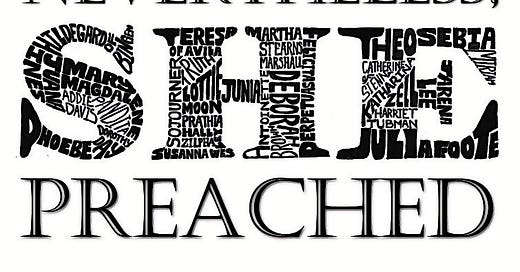Nevertheless She Preached
I have spent my entire life having my call to ministry cultivated. Even before I felt my calling, my pastors and church leaders noticed gifts within me. They urged me to listen to God. They had conversations with me about my call. They helped me form and grow what it meant to be called. Even in the tough times, I had people all around me supporting me a…
Keep reading with a 7-day free trial
Subscribe to The RunninRev to keep reading this post and get 7 days of free access to the full post archives.




